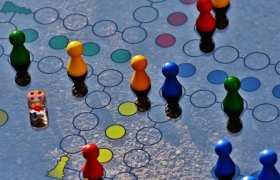Types of Learning Disorders and How to Detect Them

Learning disorders are estimated to affect between 15% and 20% of the population. If you have one you know how tough it can be in school and life, in general, to work around it..Learning disorders are differences in how the brain processes information and last a lifetime, there is no cure but adaptation is possible. Caught early enough most people can learn to cope with their learning disorder. There are many types of learning disorders and people may have more than one, so learning what the signs are and how to get help is key.
There are 4 major areas affected by learning disorders:
- Reading
- Math
- Writing
- Understanding and processing directions
Some learning disorders you might be familiar with are:
Dyslexia which can affect the ability to read and comprehend. Dyslexia can make it hard to understand or comprehend what people are saying and can cause delayed ability to speak. When it comes to reading it can present as reversed letters or poor spelling. Dyslexia can also contribute to frustration from being unable to remember or follow directions properly.
Dysgraphia can make it difficult to organize thoughts and write down ideas. Kids with dysgraphia may have a very strong aversion to writing and drawing as it can cause them physical pain and frustration. Writing for a person with dysgraphia can be physically and mentally exhausting so they might avoid doing it at all costs.
Dyspraxia can make it hard to organize things, sensitivities to sounds like a dripping faucet or ticking clock, and even make clothes unbearably uncomfortable. Dyspraxia can be seen when a child has trouble coloring within the lines, cutting paper shapes out, or even just walking around as it can cause poor balance.
Dyscalculia changes the way people understand math and can make it impossible to follow along with a pattern or sequence, remember steps or do simple math like making a change or following along in a word problem.
You will need a doctor to diagnose a learning disorder, but you can watch for the signs so you’ll know when to have your child evaluated.
 Signs you may notice during preschool:
Signs you may notice during preschool:
- behavior issues: inability to sit still, hitting peers, getting into fights, gets frustrated easily, needs adult presence all the time, often prefer playing with smaller children
- language/communication issues: trouble saying or explaining what they mean, getting distracted or unable to follow simple instructions, not making eye contact or paying attention
- when you’re speaking to them, constantly changing the subject in a conversation
- math: trouble learning shapes, slow to learn counting and simple math
- motor skills: clumsy or uncoordinated, unable to properly cut or glue paper, much more trouble coloring than their peers
Signs you may notice during elementary school age:
- behavior issues: anxiety, constant daydreaming, inability to get along with peers, low self-esteem
- language/communication issues: reversed letters, substituting letters with wrong ones,
- inability to comprehend what they have read, trouble concentrating, difficulty following directions
- math: difficulty ordering numbers, recurring math errors even after the concept has been practiced a lot
- motor skills: unable to do coordinated movements like skipping, more trouble with motor skills like cutting circles from paper, poor handwriting
If you’ve noticed these signs, there are a few things to check before deciding to have your child evaluated for a learning disorder. Check their vision, hearing, and general physical health. It’s not unheard of for a child to have mild vision or hearing problems that are affecting their ability to learn and process information. Remember that ADHD, Autism, and other differences in the brain are not learning disorders and must be approached differently and are diagnosed by other types of doctors. Make sure to write down all the symptoms you’ve noticed and had a frank discussion with your doctor about your concerns. You definitely don’t want to try to self-diagnose or get a misdiagnosis because you didn’t go through the proper process to rule out other issues.
Once you have ruled out all other causes take your child to their doctor and ask to be evaluated for learning disorders, the doctor may refer you to a specialist for this. Doctors that can diagnose learning disorders include clinical psychologists, pediatric neuropsychologists, educational psychologists, and psychometrists. Usually, insurance will cover the cost of these visits but you may have to pay a copay or meet your deductible when paying for them. A visit with a pediatric neuropsychologist can take up to 8 hours at a time so be prepared for that and be sure to ask when making your appointment about how long the visit is expected to be.
If your child is in school you may be able to get the school to pay for this testing, so check on that before doing it on your own, especially if insurance won’t cover the whole cost.
If your child does get diagnosed with a learning disorder, do everything you can do advocate for them. Schools in the U.S. are required to accommodate learning disorders through providing therapies and tutoring and also making changes in your child’s classroom to help them along, for example giving extended time for assignments and tests to students who need it.
At home:
- Work with your child on the skills they are struggling with but be sure not to force them to work on it longer than they can tolerate.
- Play games that enrich them in areas they are having trouble with, if reading is an issue play spelling games like Boggle or Scrabble. If your child is having trouble in math play games where they will have to use math to keep score, like Uno or Dominos
- Encourage your child when they are doing well and remind them that you love them when they aren’t. Praise effort over results.
At school:
- Talk to your school about an IEP (individualized education plan) to make sure your child is getting all the accommodations they need.
- Work with the teacher to find new ways to support your child, make sure you know what they are working on in school so you can enrich at home.
- Make sure your child is turning in all homework and other assignments as this helps the teacher find key information about their progress.







